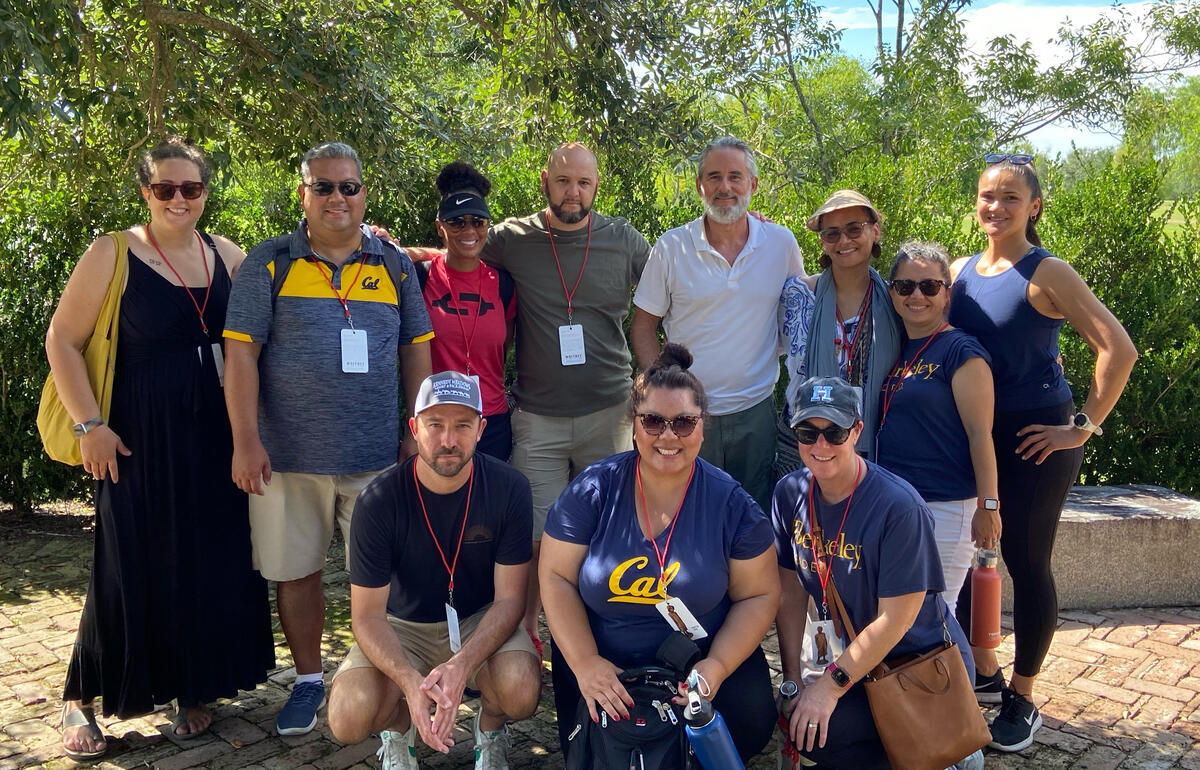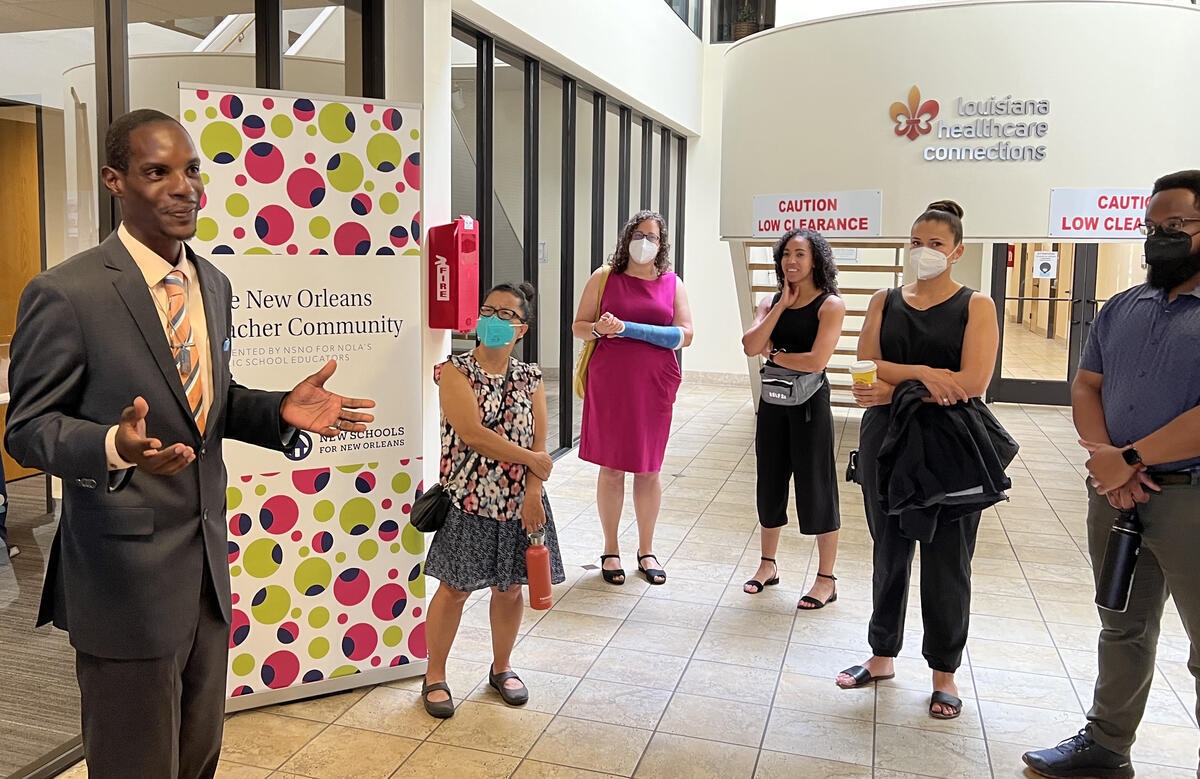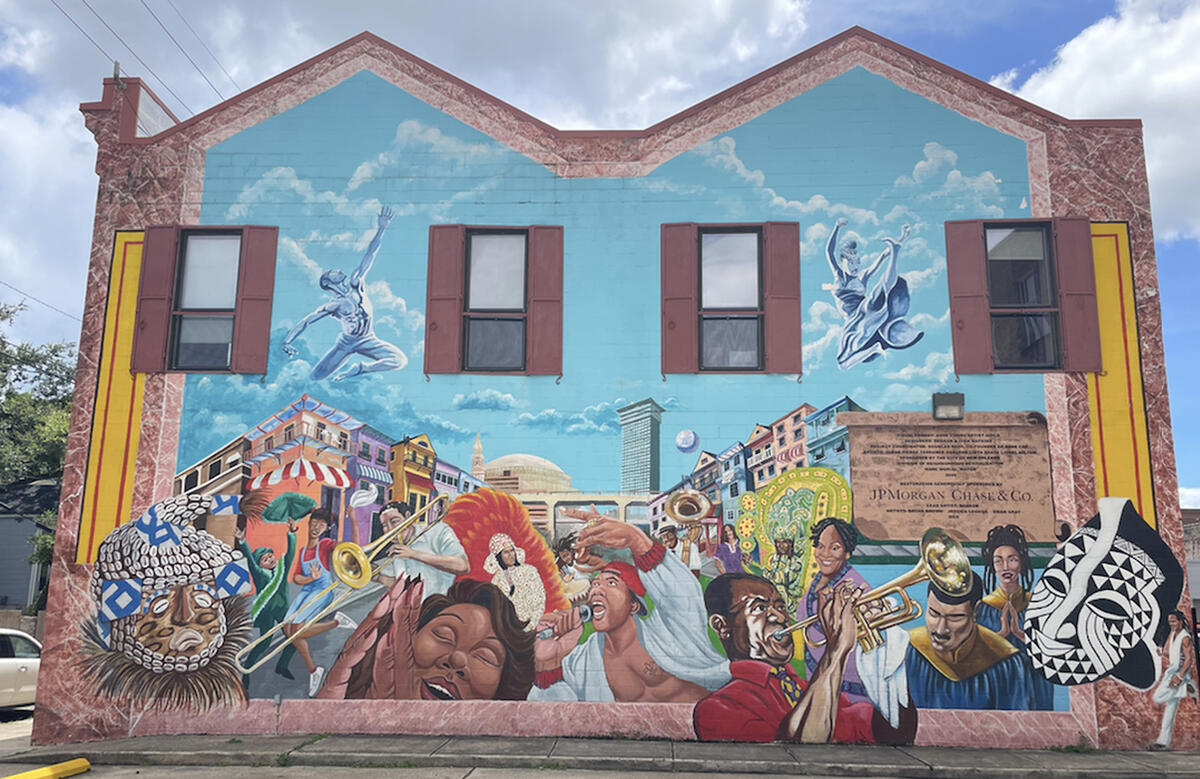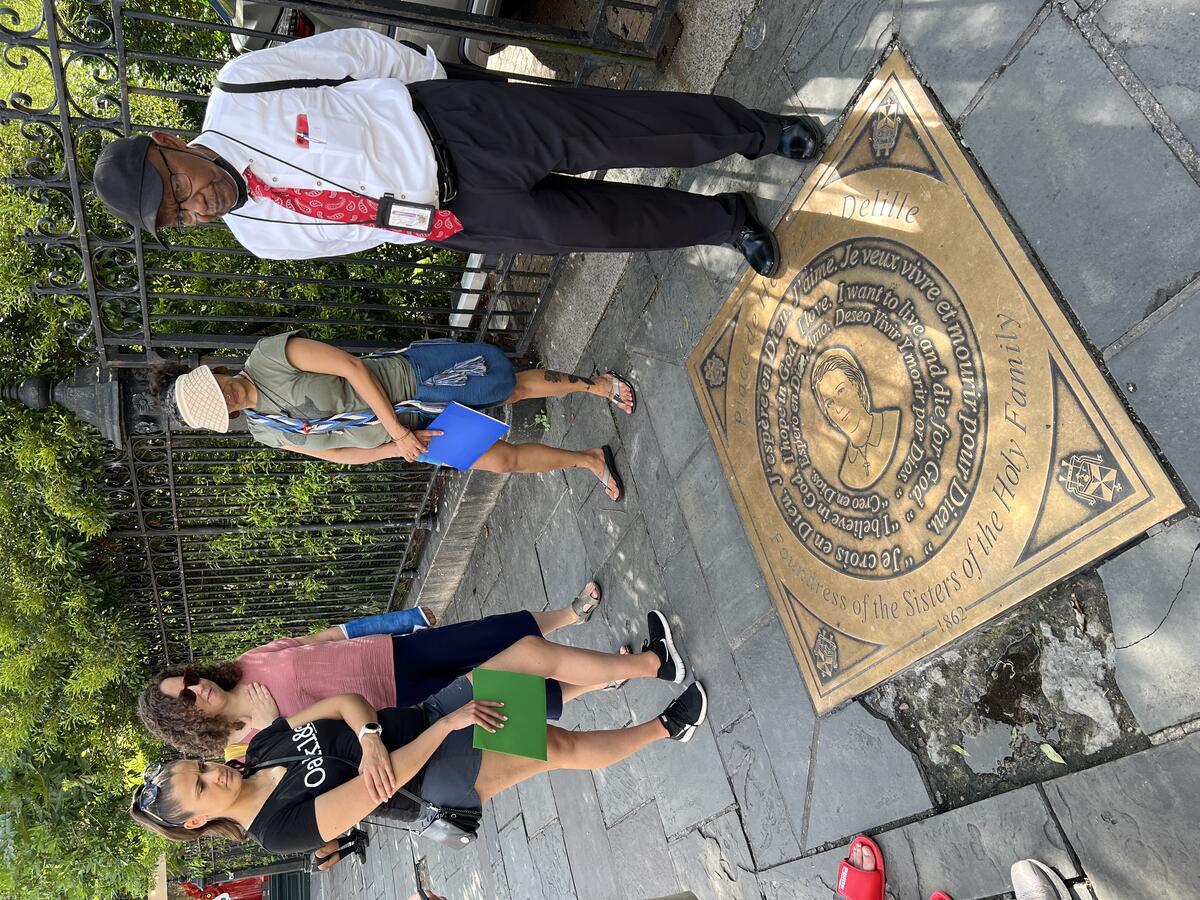Ten Berkeley School of Education (BSE) doctoral students in the Leaders for Equity and Democracy (LEAD) program and Program Director Lihi Rosenthal traveled to New Orleans this summer for a field visit exploring systemic causes of and resistance to intergenerational injustice. Through meetings with a swath of educators, activists, public sector leaders, and entrepreneurs, the visit explored aspects of system leadership related to students’ core studies as entering second-year doctoral students. The field visit is a signature milestone in the newly revamped EdD program. It is designed to connect theory with practice and provide students an experiential introduction to different aspects of system leadership for social change.
Highlights of the four-day trip in July, spearheaded and organized by Rosenthal, included a meeting with incoming Superintendent Avis Williams, the first woman and the first Black woman to lead NOLA Public Schools in 181 years, a “Disrupter Dinner” with local innovators, guided visits of the city and nearby Whitney Plantation, observations at local schools and nonprofits, and a visit with the Tulane School of Public Health.





Students in LEAD are seasoned educational leaders throughout Northern California. nives wetzel de cediel, a student in LEAD Cohort 1, who leads and teaches in the BSE’s Berkeley Teacher Education Program, explained why a trip to New Orleans could expand and deepen knowledge: “It’s a concentrated look at where history, race, economics, and place all converge and you can see it really, really clearly.”
Berkeley and New Orleans educators connected about more than the details of teaching and leading, wetzel de cediel said. “We’re talking about systems of oppression. When the educational system is so-called failing, it’s doing what it’s designed to do: to serve some and not others.”
LEAD student Francis Rojas also emphasized that the trip immersed doctoral students in a history of struggle for social change.
“Through the storytelling of our guides and activists, experience of art, music, food and culture, discussions with local changemakers, and reflective engagement with our cohort, we were able to better examine and critique the various systems and power structures at play, and deeply understand the lasting impact and generational trauma of colonialism, slavery, religion, government and capitalism on people of color, indigenous peoples, and people of LGBTQ+ communities,” Rojas said.
In New Orleans, LEAD students met with community activists, policy makers, educators, and public health leaders in both formal and informal settings. In their “Disrupter Dinner,” they connected with entrepreneurs and innovators who shared a commitment to lead for social change, but weren’t necessarily educators themselves.
wetzel de cediel said educators almost always come to the field with skills outside of the education realm. For example, she is a visual and performing artist experienced in the Theatre of the Oppressed—an interactive method that involves, as she explained, “a powerful collection of embodied drama exercises that aim to give the protagonist the opportunity to devise and practice new responses to lived oppression.” wetzel de cediel said she appreciated the opportunity to meet with people in New Orleans who shared their multifaceted identities and approaches.
“Everyone had a different take on how they were disrupting that historic narrative with a particular focus on New Orleans or a particular focus on pathways to music or a particular focus on financial freedom and building generational wealth,” she said.
wetzel de cediel said that the trip affirmed that she wants her dissertation to have relevance and be readable and comprehensible to those who work in the field daily. In fact, she said, all of LEAD students have vastly different topics, but all want their writing to be resonant with and relevant to practitioners.
While in New Orleans, students also visited the Whitney Plantation, the only former plantation site in Louisiana to center the experience of enslaved people. This tour was complemented by guided walks through the French Quarter, where local activists and historians helped students recast today’s tourist sites through the lens of various marginalized groups, revealing the relevance of place in the lives of the communities that have called and do call New Orleans home.
“The New Orleans visit is yet another reminder about the danger of the single narrative on history,” said LEAD student Mai Xi Lee. “As leaders of equity and democracy, we should always strive to seek out the hidden voices and untold stories.”
wetzel de cediel says she holds the deep knowledge of that shared pain when she teaches at Berkeley.
“The uglier the history is the more we need to say it and remember because it’s respectful,” she said, her voice choking with emotion. “It’s a suffering that I will never have to endure. I do feel a gratitude to people I have never met and I take them with me when I go in to teach. And I take them with me when students are talking about how hard their lives are. … I don’t have the right to turn away and look away.”
